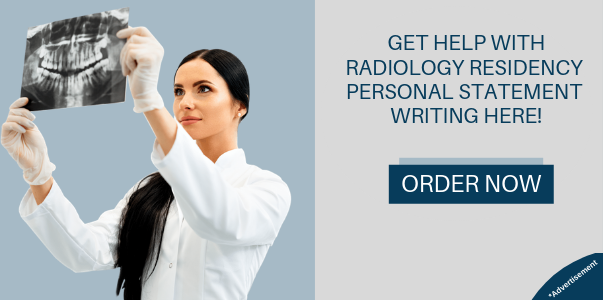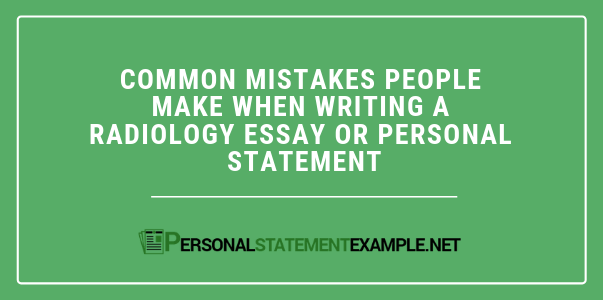A radiography personal statement offers residency applicants an opportunity to secure an interview slot into that institution of choice. But just writing a letter of intent, repeating your curriculum vitae, stating what’s contained in your academic credentials will only do injustice to your med school application process.
To make things worse, having so much to write but not been able to make an interesting selection could further mar your chances of securing an admission into a residency program interview stage. And if you are so bad with your literary skills, knowing these 5 things to include in your radiology essay can save you a seat with the interviewers.
Statistics about the Number of Applicants for Radiography Admission
Available figures into radiography programs in the UK shows a high percentage of student secure admission to study radiography. In 2009 at least 97% of applicants got placements in their specialty to study radiography with the least figure been in 2007 with 89% admission rate.
Questions Your Radiation Oncology Personal Statement Must Cover
There are a lot of questions writing radiation oncology personal statement must answer. And they are:
- What key experiences have helped to shape your decision for radiography?
- How passionate are you about becoming a radiographer?
- Can you state what value you being a radiographer hold for others?
- What key qualities do you have that can help you excel in radiography?
- How well can you channel your skills in the study of radiography?
- What are your personal and general philosophies to life?
- What has influenced your life’s decisions the most?
5 Must-Have in Your Radiology Residency Personal Statement
A killing introduction
When writing the radiology residency personal statement once you get the introduction wrong then every other thing no longer counts. The reason is that a boring or misplaced introduction only turns the director off especially since he has dozens of others to read. You can use an intriguing story or past experience that has helped shape your decision for radiography. The introduction should be sharp, straight to the point, punchy and also state why you chose radiography.
Skills, qualities, and experiences
The whole essence of the radiology personal statement is to help see you through to the interview stage and finally the residency program. Therefore, you need to select those skills, qualities and expand on experiences that help capture the minds of the directors and get them excited to want to hear from you personally.
An organized personal statement
No matter how good your credentials, skills, and experience are if you cannot present them in an appropriate manner it could end up in the trash can. Create central themes for everything you need to write. Build your clinical experiences, patient care and more other things that relate to radiography and present them using central themes in your personal statement. Use the introduction, body, and conclusion. Have four to five paragraphs covering all necessary themes and conclude with a bang making the committee needing more. But edit, proofread and format to instructions.
Strength and weaknesses
Play on your strength and describe how well you have used them plus how valuable they can be when pursuing radiography. Also, talk about your weaknesses and how much improvement you are achieving with overcoming them or how they could end up as a strength for radiography.
Show passion and career goal for the future
It must be evident you feel excited about radiography. Talk also about your goals for the future and how much good you think it would be for society when you study radiography at the institution. Then mention those features the institution has that relate to your study needs for radiography.
Common Mistakes People Make When Writing a Radiology Essay or Personal Statement
Writing a radiology essay has never been that easy hence a lot of persons make mistakes. Here are some of the mistakes to avoid:
- Avoid repetition of words at the beginning of each sentence or the repetition of the word ‘I’ too often. Substitute with other synonyms.
- Using the passive voice or tense makes your work appear you lack control and it becomes sloppy.
- Making the PS too short gives the impression you don’t have much to say but making it too long appears you lack restraint and organization.
- Writing to impress by using high-sounding words only shows the lack of depth.
- Not starting early, revising your work multiple times and getting a second eye to read through before submission.
- Having too many themes or ideas without creating a rallying point makes the work a bit complex.
- Using complex sentences that help mask the true meaning.
- Plagiarism or copying parts of other author’s personal statement is a recipe for failure.
Building a career in radiography can be an interesting one that the applicant has prepared for adequately. But being able to communicate that effectively using the diagnostic radiography personal statement takes practice and strict adherence to instruction.




